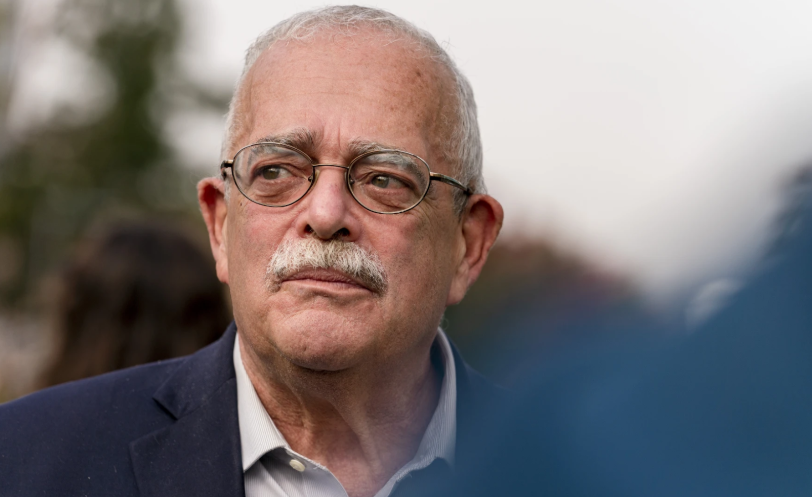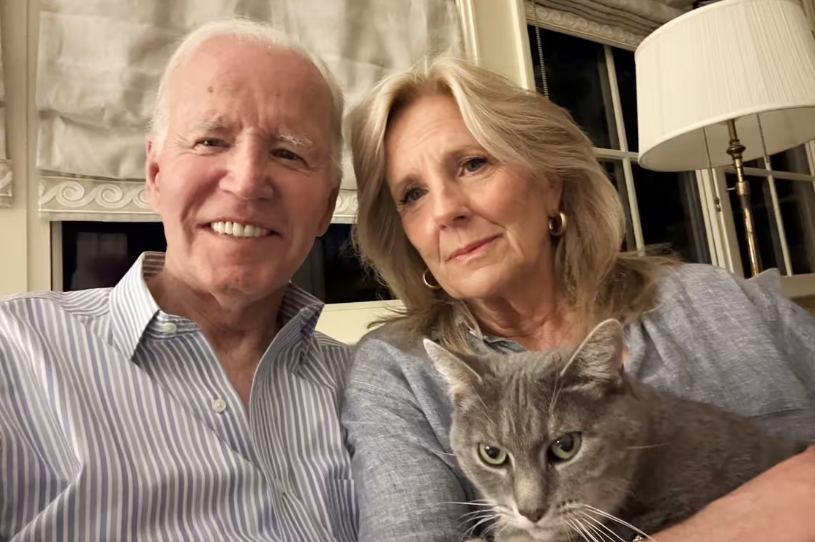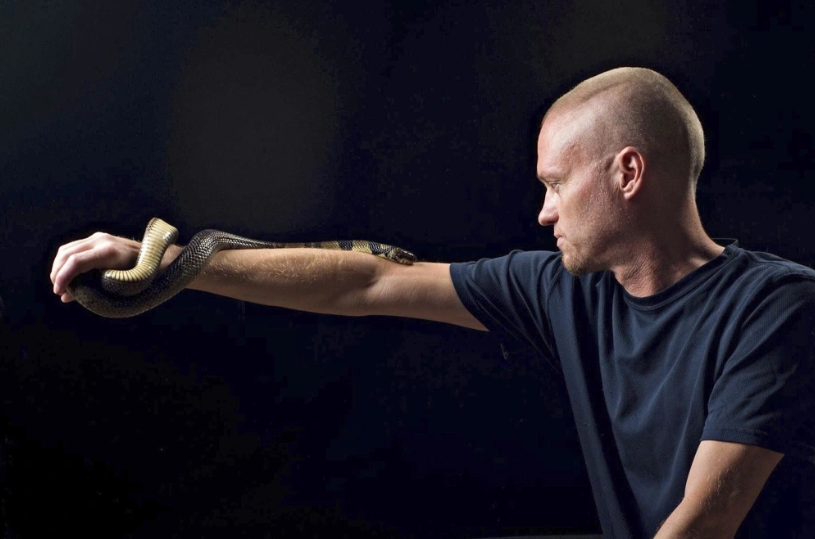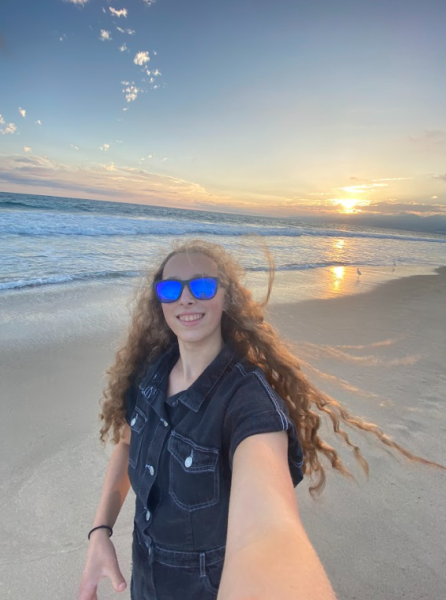
The CIA is not as far away as you may think. From political scientists to graphic designers, there is a spot for every talent in the Central Intelligence Agency. The Sentinel interviewed the Deputy Director of the CIA for Digital Innovation, Jennifer Ewbank, to learn more about how high schoolers can prepare themselves for a future in the agency.
Q: What educational path can a person take to be considered for a job at CIA? How did you get started with the CIA?
A:The great thing about the Central Intelligence Agency (CIA) is that you can truly start from anywhere. Political scientists, graphic designers, engineers, logisticians—we need a wide variety of skills for our global mission. We need operations officers with foreign language capabilities, who can deploy around the world to collect secret intelligence. We need data scientists and analysts to make sense of collected data and intelligence. We need doctors, nurses, security officers, accountants, and more to help the CIA team operate securely and effectively around the world.
Some of your readers might be wondering—what exactly does the CIA do? And, is it like the movies? I can tell you upfront that compared to the movies, there’s a bit more paperwork and meetings—but the sense of urgency to outsmart our adversaries and win the day for the American people is absolutely accurate.
The mission of the Central Intelligence Agency is to help protect US national security by collecting foreign intelligence (meaning, information relevant to US national security interests), informing policymakers with our analysis of that intelligence, and conducting covert action at the request of the President.
All of our career tracks support these foreign-focused mission areas, including:
- Operations Officers who collect intelligence;
- Technical Intelligence Officers who develop capabilities to collect information or conduct covert action;
- Intelligence Analysts who apply their expertise to assess intelligence reporting to inform policymakers;
- Cyber Operations Officers who gather intelligence to help protect US IT networks;
- Support Integration Officers who enable all of these mission areas all around the world.
I joined federal service with degrees in Political Science and French from the University of California, Berkeley. I started my career as a Foreign Service Officer with the Department of State many years ago, and served as a junior diplomat to shape and advance US foreign policy in Southeast Asia. It was the end of the Cold War, and tensions with the Soviet Union still dominated the news and international relations. Although I found my work for the State Department incredibly rewarding, it wasn’t long before I started to consider other ways I could contribute to our national security. I later joined the CIA’s Directorate of Operations, and began what would be a long career as an operations officer.
Q: What does a CIA case officer actually do? What are the best routes to joining the CIA as a case officer?
A: CIA case officers, or operations officer, collect intelligence from human sources, referred to as human intelligence or HUMINT. Operations officers often serve tours of duty abroad to collect foreign intelligence and work to discover secrets vital to protecting U.S. national security. They also can, and I did, work closely with foreign governments on mutual national security challenges, like counterterrorism.
To join CIA in any role, we have some baseline requirements—you must be a US citizen, you must be at least 18 years of age, you must be willing to move to the Washington, DC area, you must physically be in the United States or US territories when you apply, and you must be able to successfully complete all security and medical evaluations.
Beyond those requirements, keep in mind that officers in the Directorate of Operations often live and work undercover. This means after joining the CIA as a case officer, you would need to be discreet and selective about who you talk to about your career.
For more information on CIA’s hiring process, including interviews, background investigations, requirements, and polygraphs, you can read more at https://CIA.gov/HIRING PROCESS.
Q: After you accepted your position with the CIA what training did you go through? Can you discuss your first assignment?
A: At first, it may seem a bit daunting to consider a truly unique career like joining the CIA—but trust me when I say that the Agency will offer you exceptional training to be successful in any of our career paths. Whether you aspire to be a CIA analyst, case officer, engineer, or cyber expert, we encourage continuous learning at every level of your career, even at our most senior ranks.
I can tell you that when I moved overseas for my first field tour as an operations officer, I knew I had found my calling. It’s exciting to be in a new country, using new foreign language skills, working side by side with fellow Americans and allies to advance America’s national security interests. Of course, when successful, our work remains in the shadows, and there will never be a lot of fanfare or public accolades in this line of work—but there is such a great sense of pride in serving your nation, and you can often see real-world impacts from your work. In short, I really felt (and still feel) that my work contributes in a tangible way to protecting the American people.
Q: What has been the most gratifying part of your job?
A: I have always thought the best part of my job was the ability to move around every couple of years and work from a new country or on a new mission area. It’s a natural part of CIA officers’ career progression to change jobs every few years, and those changes can be fairly drastic—an analyst who has spent their career studying money laundering might take a tour in our cyber operations division to analyze illicit cryptocurrency transactions. Or, take me for example—a career operations officer was called to lead the Directorate of Digital Innovation! So, the ability to continuously learn new things, and apply the full breadth of your knowledge to new mission challenges, has been incredibly gratifying and it’s kept me excited to go to work every day for more than three decades.
Q: What is the toughest part of your job?
A:This is not an easy job, at any level of your career. It can entail working long days, nights, and weekends. It can mean working far from home and your loved ones. And some days, depending on your job, can be filled with risk and stress. It can also be difficult to not be able to share the details of your work life with your friends and family. And we ask CIA employees to meet the highest security standards, which come with some restrictions in your personal life. No, it’s not an easy job, but it is worth it—I wouldn’t trade any of the long hours or missed holidays for any other career. Long after CIA officers retire and leave the hallowed halls of Langley, they look back on a career that gave them a sense of purpose and allowed them to serve their country.
Q: What would you say to high school students who regularly use TikTok? What would you say to high school students about keeping their digital footprint limited and clean?
A: What a great question. I’m so glad your generation is already thinking about managing what we would call your digital footprint! It’s especially important today, because unlike when I was growing up, your whole lives are playing out online. That is my first word of advice on the subject—keep in mind that the Internet is forever, and you should be judicious about what you’re recording for posterity. Another word of advice, if I can share a famous saying from my line of work, would be “trust, but verify.” It might look like a safe app, or a good link, or even a good person, but there are far too many phishing, spoofing, and other scams out there to take anything at face value.
As far as TikTok, I’ll tell you what the White House told all federal employees—we are not allowed to use TikTok on any government devices, because policymakers judge that the Chinese-owned app poses too great a risk to government data. So, I’d just suggest that it’s up to each person to decide how carefully they wish to protect their own personal data.
Q: What are some college courses high school schoolers passionate about national security should take?
I’ll show my bias and push for digital technology courses—get all of the training in computer science, data science, engineering, and artificial intelligence and machine learning that you can. Foreign languages are also a huge boon, for many facets of life, and would serve you well in any US Government career.
I’d also encourage you to get a head start—you don’t have to wait until you graduate college to work at CIA. We have internships and student programs that allow college students to work with us over a semester or a summer. It’s a great opportunity to see if you’d like to pursue a career at the Agency, and it’s a good way to learn security practices early, so you don’t have to worry about your digital footprint later!
While a job at the CIA may seem miles away to a high schooler, classes are available at South Lakes that allow students to learn skills that are used daily to protect national security. Studying a foreign language or taking a computer science class is a great way to get a headstart for a career in the CIA.















